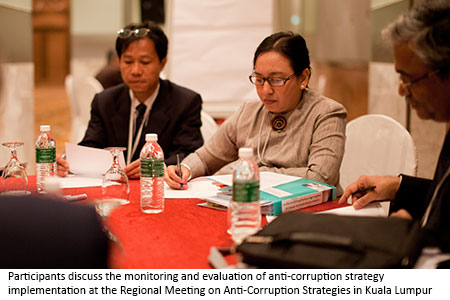
UNDP Global Anti-corruption Initiative, the UNDP Colombia Country Office and the Bogota Chamber of Commerce invite you to a side-event:
“Anti-corruption Contribution to Urban Equity”
Organized during the 7th World Urban Forum (WUF7)
Date: Sunday April 6 2014
Time:9:00 – 11:00a.m.
Location:Centro Mayor (Calle 41 # 55-80), UN Room. Medellin, Antioquia.
{iframe width=”600″ height=”350″}http://envivo.videoteca.com.co/ccb/anticorrupcion/embedplayeriframe.html{/iframe}
9:00-9:15 Opening remarks by Fabrizio Hochschild, Resident Representative, UNDP Colombia
9:15-10:15 High level panel discussion
- Hon. Akwasi Oppong Fosu – Minister of Local Government and Rural Development , Ghana
- Mr. Sergio Fajardo, former Mayor of Medellin and actual Governor of Antioquia
- Mr. François Vincke, Lawyer, Member of the Brussels Bar, Vice-Chairman of the ICC Commission on Corporate Responsibility & Anti-corruption
- Kodjo Mensah-Abrampa, Policy Advisor – Local Governance, Democratic Governance Group, UNDP
Moderator: Karen Hussmann, Coordinadora Proyecto para aumentar la Integridad y Transparencia en Colombia; Unión Europea – FIIAPP.
Responding to the theme of the WUF7 on the role of cities in addressing inequality and exclusion, this multi-stake holder dialogue will bring together national government representatives, mayors and representatives from the local levels, private sector, academia, and the United Nations to contribute to the discussion on how cities can be agents for change and transformation in promoting transparency and accountability and fighting corruption.
If you have not signed up for WUF7, you can sign up for the side event half an hour before it starts. For more information please contact:
Nadya Aranguren (nadyalibertad@pund.org.co +571 4889002 ext. 212, +57 3118125521).
Organized by:


